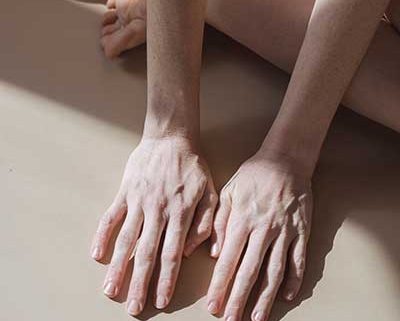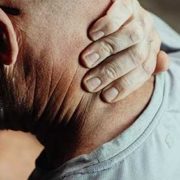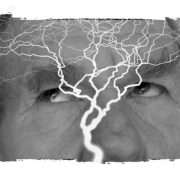How Peripheral Neuropathy Falls Under the Umbrella of Neuropathy
Neuropathy refers to a collection of diseases or malfunction of the nerves. These nerves can be damaged from injury or disease. Neuropathy is often categorized by the type or location(s) of the nerves that are affected or according to the disease that is causing it. There are four classifications of neuropathy:
- Peripheral neuropathy: Damage to the nerves outside of the brain and spinal cord.
- Cranial neuropathy: Damage to any of the 12 cranial nerves that exit the brain.
- Autonomic neuropathy: Damage to the involuntary nervous system which controls things like digestion, circulation, and bladder function.
- Focal neuropathy: Damage to only one area of the body, a nerve, or one grouping of nerves.
The most common form of neuropathy is the damage of nerves that fall outside of the brain and spinal cord, known as peripheral neuropathy. This is only one category that falls under the umbrella of neuropathy, but it affects an astounding 20 million Americans every day.
Peripheral Neuropathy and the Peripheral Nervous System
Peripheral neuropathy is often the result of damage to the nerves of the body’s peripheral system. Many different disorders as well as injuries can cause damage or malfunction of the nerves of the peripheral system, resulting in peripheral neuropathy.
The peripheral system is a network of nerves that branch outside from the brain and spinal cord and link communication to the central nervous system. The peripheral nervous system can then be divided into two main parts:
- The Autonomic nervous system (ANS): The autonomic nervous system is in control of our body’s involuntary bodily functions and gland regulation.
- The Somatic nervous system (SNS): The somatic nervous system controls our muscle movement and sends information from our ears, eyes, and skin to the central nervous system.
In these two main areas of the peripheral nervous system, 3 types of peripheral nerves are found:
- Sensory: Connects the brain and spinal cord to our skin which allows the feeling of pain and other sensations.
- Autonomic: Controls the involuntary functions in our body’s such as digestion or heart rate.
- Motor: Connects our brain and spinal cord to our muscles and stimulates movement.
When the body moves, our brain sends a message to our spinal cord where our nerves carry the message to each body part necessary to make that movement. Similarly, when we touch something, our sensory information is sent through our nerves to the spinal cord and then to the brain, where we can make sense of that information.
Symptoms of Peripheral Neuropathy
In the peripheral nervous system, every nerve has a specific function, so symptoms fall into the sensory, autonomic, and motor categories. These symptoms can be the effects of damage to one nerve (known as mononeuropathy), two or more nerves (known as multiple mononeuropathy), or many nerves (known as polyneuropathy). Signs and symptoms of peripheral neuropathy can vary widely. However, some of the most common symptoms include:
- Tingling and numbing sensations in the hands and feet
- Weak and heavy sensations in the limbs
- Stabbing, throbbing, burning, or sharp pains
- A sensation of wearing tight socks or gloves
- Shocking and/or buzzing sensations
- Thinning skin
- Problems with profuse sweating
- Lack of coordination
- Falling
- Sexual dysfunction
- Fluctuations in your blood pressure
- Digestive issues
- Constipation or diarrhea.
What Can Cause Peripheral Neuropathy
Just like the other three classifications of neuropathy, peripheral neuropathy can be caused by many factors like injuries, diseases, or infections. Peripheral neuropathy can be caused by one or more of the following conditions:
- Trauma or injury
- Toxins or poisons
- Diabetes
- Genetics
- Medications
- Tumors
- Kidney failure
- Autoimmune diseases
- Liver disease
- Shingles
- Vitamin deficiencies
- Alcoholism
Diagnosis and Treatment of Peripheral Neuropathy
There are many options in treating peripheral neuropathy once diagnosed. However, the most important treatment is to seek the help of Leesburg neurologist, Dr. Sarbjot Dulai, at the first observation of any troubling symptoms. To make a diagnosis your doctor will go through your medical history, perform a physical exam, as well as a neurologic exam. Bloodwork and imaging tests may be ordered as well. In some cases, a tissue biopsy may be done to examine and confirm a diagnosis. In some cases, symptoms can improve if the neuropathy has an underlying condition that can be cured or treated to control the symptoms. However, if this is not the case, treatments will then be likely tailored to managing and controlling symptoms to help prevent any further damage to the nerves. Treatment options can include:
- Medicines to help control pain.
- Physical therapy
- Surgery
- Making changes in living habits and nutrition
- Using a TENS (transcutaneous electrical nerve stimulation) unit
- Immune suppressing or modulating treatments.
The quicker a diagnosis is made, and treatment is started, the greater chance that nerve damage can be slowed or even repaired. Both peripheral neuropathy and neuropathy rarely lead to death if the cause of the damage is diagnosed and controlled. Recovery is possible; however, it can take months or even years. It is important to not put off making an appointment.
Make An Appointment Today With Dulles Neurology Specialist, Dr. Sarbjot Dulai!
The many categories of nerve damage that fall under the umbrella of neuropathy, including peripheral neuropathy, are very serious. If you or a loved one are suffering from any of the above symptoms, do not hesitate to make an appointment today with your Leesburg neurologist. With vast expertise, Dr. Sarbjot Dulai, can help diagnose you, find the right treatment plan for you, and provide relief to enhance your quality of life. You can call Neurology Associates at (703) 726-6393 to schedule a consultation.










